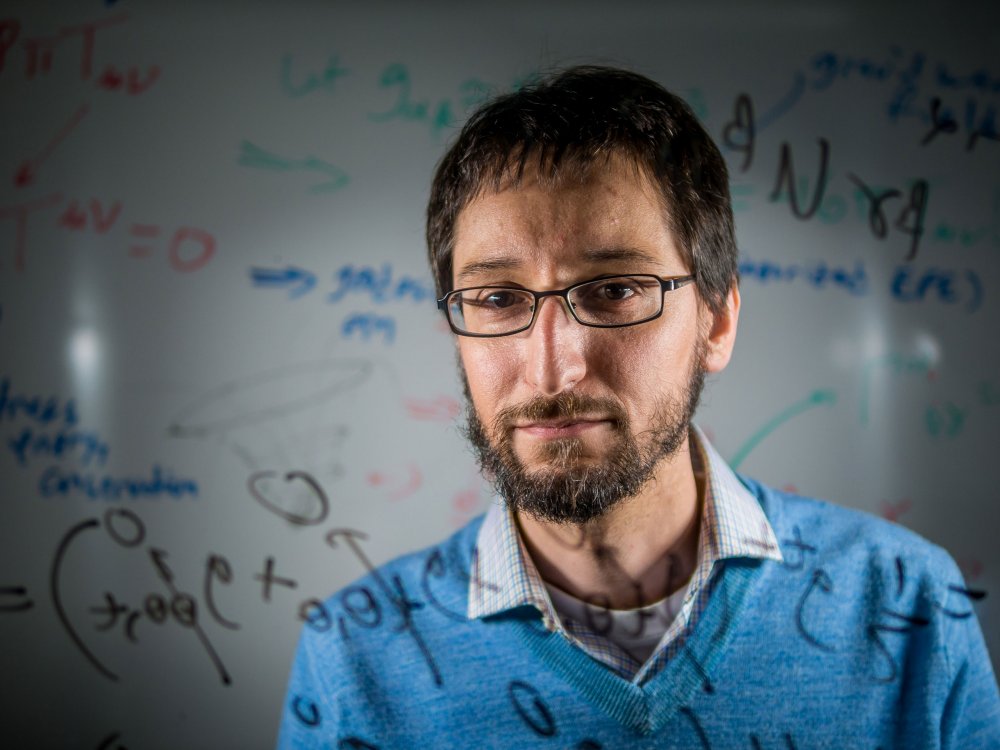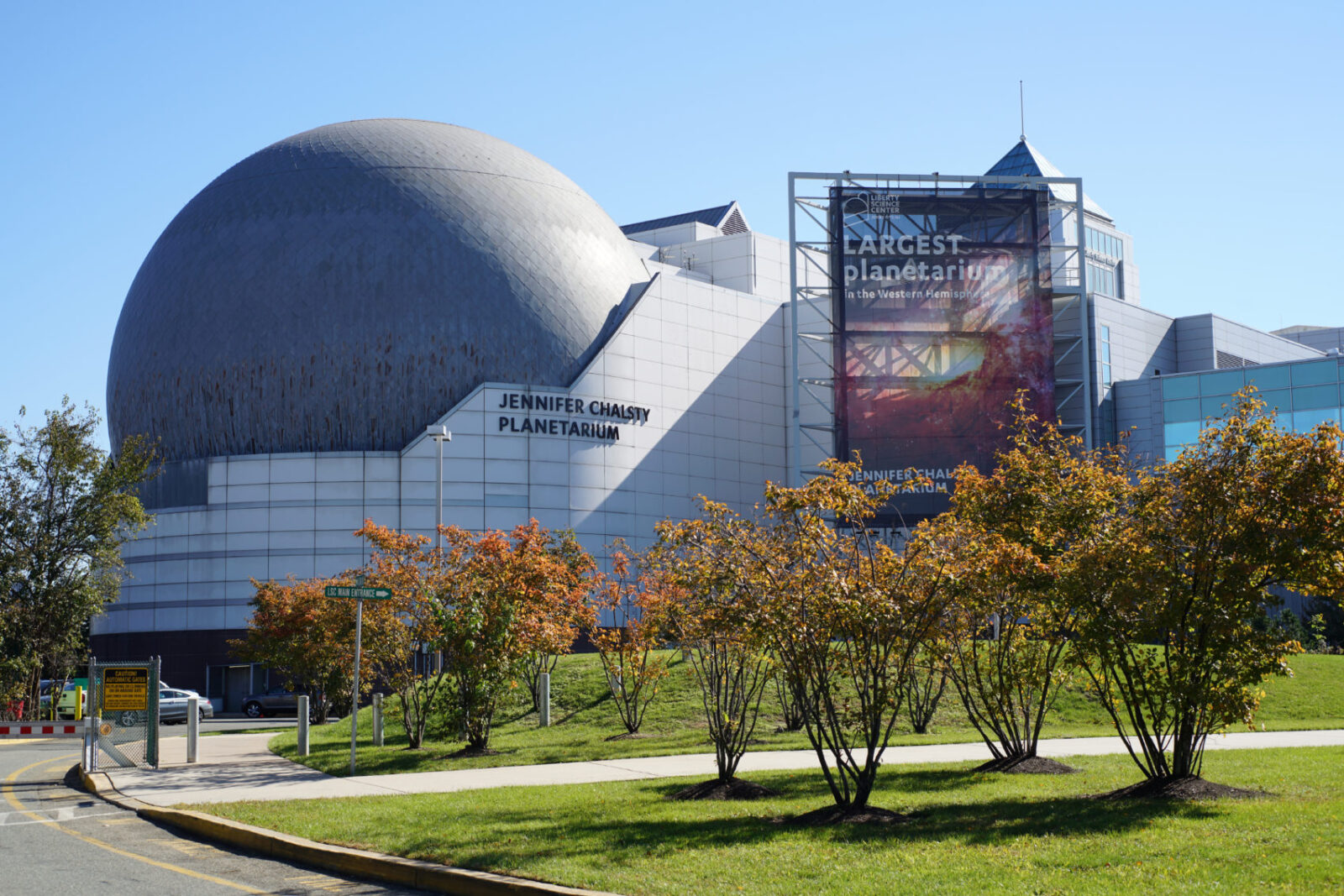Montclair State University Physics Professor Marc Favata recently talked about gravitational waves as a part of the Liberty Science Center (LSC) After Dark series, held on the first and third Thursdays of every month.

Favata’s 7 p.m. lecture for adults, which also included food and cocktails, centered on the ways scientists listen to the ripples of gravity to observe the unanswered questions about space and time.
“Gravitational waves are cool,” Favata says, “and we can use them to explore the universe in a different way than we have before, in a way that’s more like listening than watching.”
He discussed why they’re exciting, and what scientists can do with these new observations.
In addition to being a Physics professor, Favata also serves as chair of the Physics and Astronomy department, where his research focuses on modeling gravitational waves from colliding neutron stars and black holes. He uses those waves to explore the properties of stellar collisions and test Einstein’s theory of relativity.
In 2015, through the merger of two black holes, the Laser Interferometer Gravitational-wave Observatory (LIGO) made the first ever detection of gravitational waves. Favata contributes to the research on gravitational waves as a member of the LIGO Scientific Collaboration.
“I want to help focus the public’s attention on that discovery,” he says. “It’s a huge project with lots of people, including myself and two other Montclair faculty members who each contribute a small piece to the bigger puzzle.”
Favata’s presentation included audio of the sounds of spacetime. Following the presentation, there was an after-talk program featuring U2 and Foo Fighters laser shows, as well as food, cocktails and museum exhibitions.
To buy tickets for Liberty Science Center After Dark, click here. After Dark events are for ages 21 and over.











